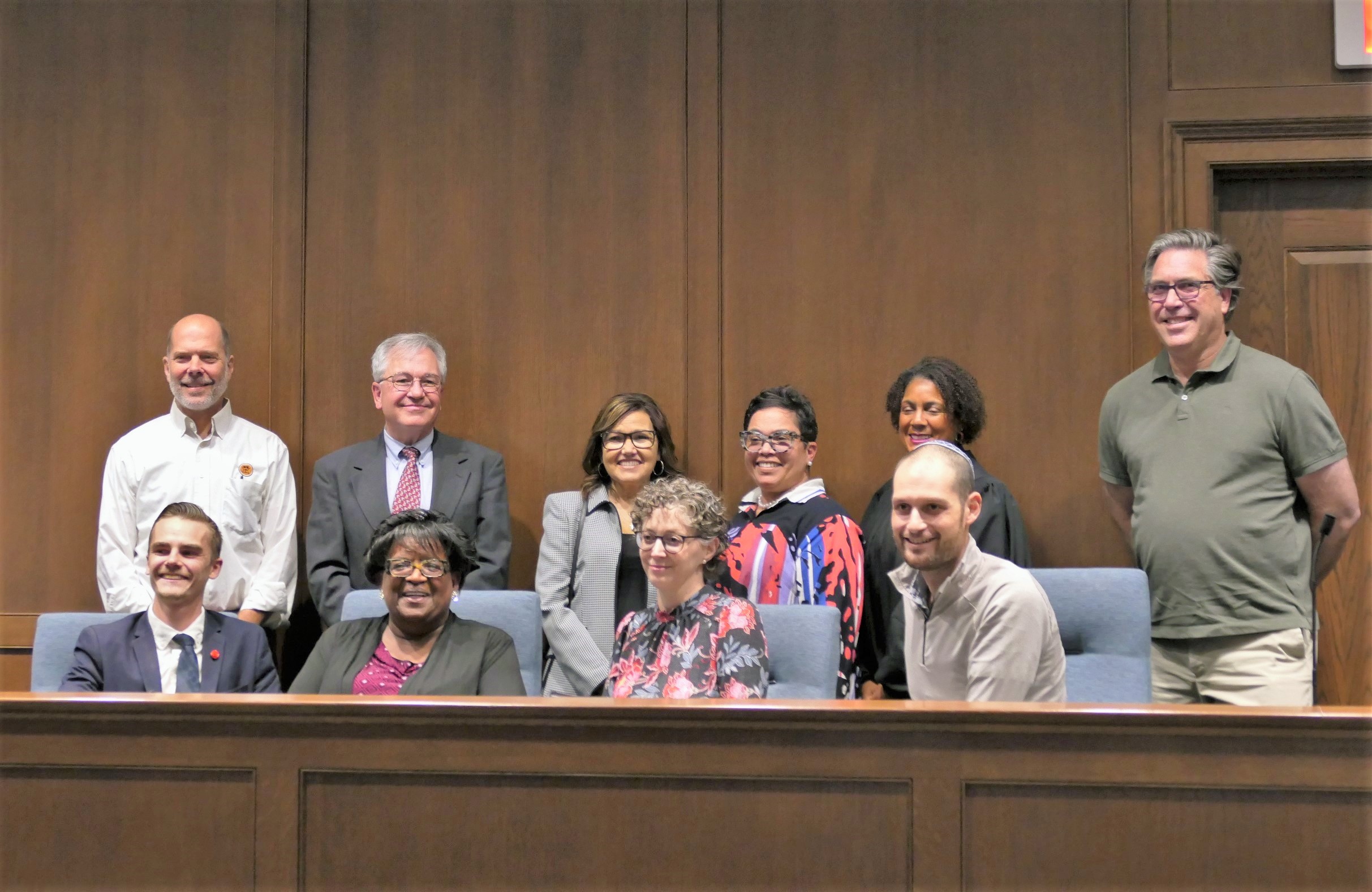Lancaster’s Home Rule Study Commission is planning to take its show on the road.
The commission devoted roughly a quarter of its two-hour meeting Thursday evening to discussing the objectives and logistics of public engagement. The deliberation culminated in a decision to seek a neighborhood venue for the body’s next meeting on Oct. 5.
The site remains to be determined: One possibility is Thaddeus Stevens College of Technology, on the city’s east side.
The commission is studying the structure and operations of Lancaster’s city government and the state laws that govern municipal powers and obligations, in order to determine if it should move ahead with drafting a home rule charter. Commission members agreed that the public needs to understand what they’re doing and be given the opportunity to weigh in.
It’s still early in the process, however, and the commissioners themselves have much to learn about the issues at stake, let alone the public at large. Thus, member Peter Barber said, while there’s an “emotional” case for holding community meetings now to build rapport with city residents, public input at this stage would be uninformed, and from a practical point of view, unhelpful.
“I’m just trying to understand how we can frame it in a way that is useful,” he said.
“I think these meetings are very important,” member Darlene Byrd countered.
Engaging with the public builds trust, which the commission will need if it decides to move forward with drafting a charter, she said. Moreover, she continued, most people don’t have the time or inclination to pore over all the material on the commission’s web page: Community meetings will allow the commission to bring the public up to speed and hear what questions and concerns people have.
Member Maxine Cook concurred, saying the public should have a chance “to see our faces in every quadrant of the city.”
Chairman Brian Adams said Ebenezer Baptist Church would be available to the commission on Sept. 20, but other commissioners said it would be challenging to get the word out that quickly. Eventually, it was agreed to hold the October meeting outside City Council chambers, and hopefully subsequent ones, too.
To promote public understanding, the meetings will commence with a short presentation by the Pennsylvania Economy League, or PEL, the commission’s consultant, on the home rule study process and objectives.
In other business …
Earlier Thursday, the three-member PEL delegation reviewed two sets of tables with the commission. One compares the forms of government available to Pennsylvania municipalities, while the other lists data on taxes, housing and police and fire expenditures for municipalities comparable in size to Lancaster.
For each municipality, PEL computed the ratio of property tax revenue to earned income tax revenue. At 4.4 ($4.40 of property tax revenue collected for every $1 of EIT), Lancaster’s ratio was the highest by far.
PEL Senior Research Fellow Gerald Cross said that municipalities with home rule can fine-tune their tax rates to reflect local conditions: Their mix of taxable and untaxable properties, their taxpayers’ economic circumstances and so on.
“What would a balanced mix look like?” commission Vice Chair Amy Ruffo asked.
When member Carl Feldman noted Lancaster’s comparatively large fire department budget, PEL Director of Financial Data Patricia Moorhead conceded that all the data was self-reported and not necessarily apples-to-apples.
Lancaster, for example, includes employee benefit costs in its departmental budgets, while other municipalities may allocate them to a general account.
In August, the commission sent written questions to four city elected officials. As of Thursday, it had received answers from three — Mayor Danene Sorace, City Council President Amanda Bakay and Controller James Reichenbach — and was awaiting answers from the fourth, Treasurer Vincent Derek Smith.
Commissioners agreed to table discussion of the material until October. In the meantime, the responses are posted online along with the rest of the commission’s meeting materials.
“I encourage the public to read them,” Ruffo said.
Next in line for written questions are Lancaster’s three state legislators: state Reps. Ismail Smith-Wade-El and Mike Sturla and state Sen. Scott Martin. The commission also plans to solicit input from city department heads and officials from other Pennsylvania municipalities whose circumstances bear on the issues it is considering.
Darlene Byrd asked if commissioners are allowed to take initiative themselves to contact pertinent individuals and ask them questions. Certainly, Adams said: That’s one of the rights of any elected official.
Cross concurred, but added a caveat: If members do so, it’s their responsibility to summarize what they learned and provide it to the rest of the commission.
‘It’s not a free-for-all,” he said.






